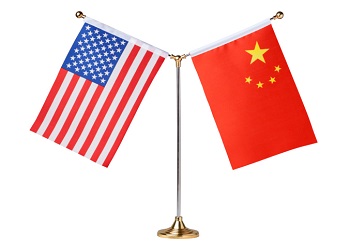
From Hangzhou to New York: The Alibaba Threat
Last week, online Chinese retailer JD.com had a strong first day as a publicly traded company when it rose 10% following its IPO with the Nasdaq. JD.com’s IPO filing made modest-at-best headlines within the U.S. despite many investors paying close attention to its progress as it comes on the heels of Chinese e-commerce giant Alibaba’s announcement that it too intends to go public in the U.S.
Alibaba’s IPO is heralded as the most anticipated since Facebook went public just over two years ago. Founded in 1999 as a self-funded startup, Alibaba is the largest business-to-business and customer-to-customer e-commerce company in the world, handling more gross sales than both Amazon and Ebay… combined. Accounting for about 80% of all e-commerce sales in China, U.S. investors are salivating at the site’s growth potential considering Chinese consumers shop online at the highest rate in the world. Like other similar sites, Alibaba has been very successful in dominating the domestic market for online shopping, but does very little business outside of its home country. With its IPO scheduled for later this summer, this may be coming to an end.
The short term threat that Alibaba’s IPO poses to U.S. tech giants is mostly limited to competition for investors rather than customers, but if U.S. companies choose to ignore its rise they may find themselves caught from behind by a company who has the potential to beat them at their own game. Amazon CEO Jeff Bezos has gradually built the company using a business model based on remaining profitable despite razor-thin profit margins, reinvesting profit back into the company and fueling expansion. Because of lower labor costs and corporate income tax within China, Alibaba CEO Jack Ma has been able to operate on profit margins even lower than Amazon. While Amazon’s profitability depends on making transactions as easy as possible and increasing the frequency of purchases, Alibaba has used its massive size and scale to charge advertisers a premium and make money even when site visitors buy nothing.
Like any foreign company, Alibaba faces a number of obstacles in competing for U.S. customers. The complexities of the Chinese political and economic system will undoubtedly scare away some investors, but if the last decade-plus has been any indication, Alibaba will have little problem finding Americans who want to get in on the action of a rapidly growing economy. Since 2001, the U.S. demand for Chinese stocks has been steadily rising, and not just because the number of stocks held overall has been rising. As a percentage of all investment in foreign stocks, China’s share has risen from 0.5% in 2001 to 2.5% last year. Alibaba’s much anticipated U.S. IPO will likely drive this share even higher and illustrates the desire for investors to capitalize on emerging markets with a growing middle class.
If the U.S. wants to remain the primary economic force in the world, it needs to recognize these trends and take steps to address them. As outlined by Robert Pozen in an ASP-sponsored event, a reduction in the corporate tax rate will encourage companies to repatriate profits and encourage foreign investment. The U.S. must put pressure on China to play by the internationally accepted rules of currency valuation to ensure a fair playing field if Alibaba does eventually begin to take hold in the U.S. Additionally, U.S companies Amazon, Ebay, Google, and Apple need to adapt their business models in light of the growing number of international competitors.
Back in 2005, CEO Jack Ma was quoted in Forbes as saying “Ebay may be a shark in the ocean, but I’m a crocodile in the Yangtze River. If we fight in the ocean, we lose, but if we fight in the river, we win.” Nearly ten years later, Alibaba is on the verge of bringing the Yangtze River to New York, and the U.S. tech sharks had better figure out how to take on a crocodile.






[…] to quit playing fast and loose with the internationally accepted rules on currency valuation. With e-commerce giant Alibaba set to make a China-sized splash in the U.S. stock market later this summer, we need to ensure […]